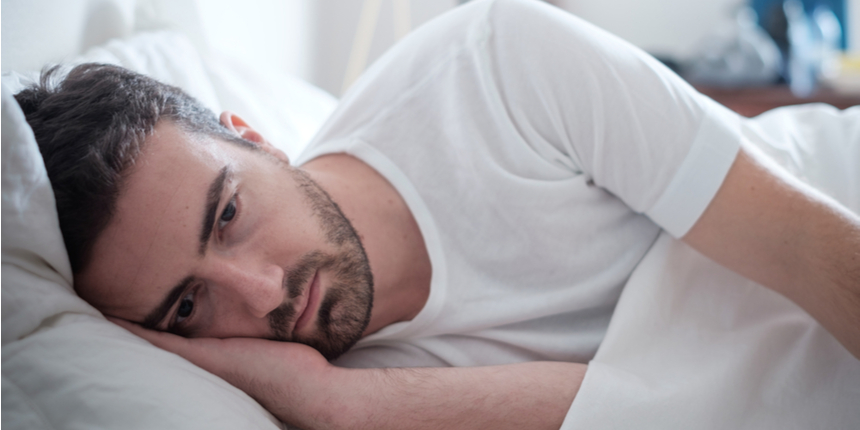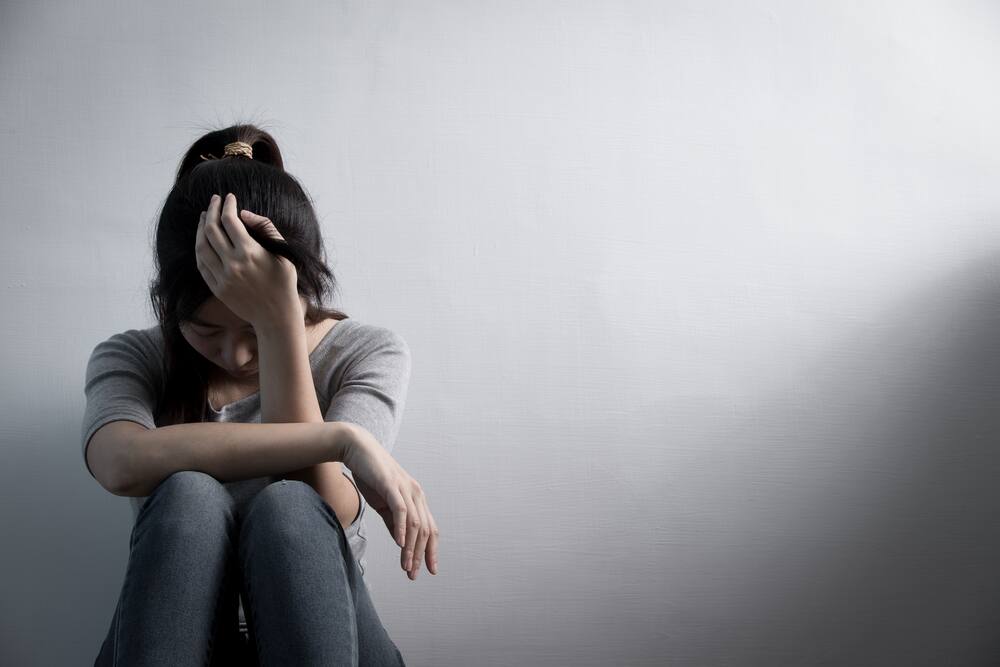How To Identify Depression: Know When To Seek Help
What is depression? Depression has become a layman's term. It is a term every one of us has used at some point in a self-deprecating or fatalistic manner, as a dark joke, or even to address our sadness. If we look at it from a historical point of view, it is in a way, helpful, because it provides a vocabulary for previously misunderstood or not understood symptoms and pathologies. However, it also means that it becomes a kind of smokescreen, a shroud upon our eyes that misguides individuals about what depression really is.

Depression is thus familiar to us, yet unknown.
Disbanding The Myths Around Depression
So, before we get into the nuances of depression, let me help dispel this mist around it and bust some common myths that many of us hold with regard to the experience, cause, and impact of depression.
Myth 1: Depression Is Not A Real Disorder
Depression is not just a psychological concern, but also a medical condition. For many years we did not have ways to detect depression, however, in recent years neuroscientists have helped provide clarity by conducting studies that have helped us see that depression is not just in the mind, but in the brain as well. MRIs and fMRIs, as well as PET scans, have been brought into use to detect neurological abnormalities associated with depression. Furthermore, during depression, our neurotransmitter levels get imbalanced, and a simple urine test can help us see this. The moment a psychological concern enters the range of the body, it becomes a medical condition. This is because the brain is an organ, and therefore, part of our physiology.
Myth 2: Depression Means Feeling Sad
Depression is closely related to and encompasses sadness, but just feeling sad is not a characteristic of having depression. We will see what are the symptoms of depression further in the article.
Myth 3: Depression Can Occur Out Of Nowhere
Many psychologists still hold and promote this belief that depression can simply occur out of nowhere. That is, simply, not the case. Depression does not occur without cause. The causes can be varied, but certainly not non-existent. Our diet, comorbidities, lifestyle, emotional experiences, stress management, relationships, etc. can cause or aggravate depression.
Myth 4: Depression Only Arises Out Of Traumatic Situations
Depression can be caused by traumatic events like loss, abuse, break-ups, etc., but is not limited to them. Depression may occur due to prolonged stress or emotional distress at a minimal, but consistent level. Poor diet, lack of sunlight, lack of exercise, lack of sleep, loneliness, drug abuse can all lead to depression too.
Myth 5: Anti-Depressants Are The Only Solution
Depression does not necessarily warrant medication. Even if one is to start taking medication, it is not a lifetime commitment. People with depression stay on medication for a few months and then get off of them, while some take medication on and off. It often depends upon the individual’s progress, and even choice. A clinician who suggests that medication is the only way or that you must stay on it forever, or does not reduce the dosage, maybe someone you should NOT continue therapy with. Depression can be resolved using talk therapy, body-based therapies, experiential and expressive therapies, yoga and nutrition, Transcranial Magnetic Stimulation, either individually, or in combination.
Myth 6: Depression Is Age/Gender Specific
Depression can develop at any age or time in our lives. It is neither necessarily a part of adolescence, nor post labour, nor does it necessarily occur during ageing. While studies do suggest that women are relatively more vulnerable to have depression, it is not true that men are not susceptible to depression or do not suffer from depression.
Myth 7: Depression Means The Person Is Weak
Depression is not a sign of weakness, just as any other illness is not a sign of someone’s weakness. Rather, it means something has not been going right for the person, and an imbalance of some kind has occurred, leading to this. Depression is often not even the actual disease, but a symptom of the disease lying below. Depression can be a symptom of not getting enough physical and/or emotional rest, or prolonged stress.
Myth 8: Depression Is Of One Kind
As per the Diagnostic and Statistical Manual of Mental Disorders-5, formulated by the American Psychiatric Association, there are different types of depression falling under the category of depressive disorders. These are:-
- Persistent Depressive Disorder, formerly known as Dysthymia
- Disruptive Mood Dysregulation Disorder
- Premenstrual Dysphoric Disorder (PMDD)
- Substance/medication-induced Depressive Disorder
- Depressive disorder due to another medical condition
- Bipolar Disorder
- Psychotic Depression
- Seasonal Affective Disorder (SAD)
- Postpartum Depression
 We Need To Do Away With The Myths Surrounding Depression
We Need To Do Away With The Myths Surrounding Depression
Signs Of Depression
Now that we are able to see beyond the smokescreen of stereotypes and colloquial ideas, let us look at some of the signs of depression.
- Feelings of sadness, anxiety, emptiness or hopelessness, or pessimism.
- Frequent crying episodes that may or may not have been triggered by something.
- Angry outbursts, irritability, or frustration over small issues.
- Loss of interest or pleasure in activities that were previously interesting, joyous, or pleasurable.
- Sleep disturbances, like insomnia, oversleeping, trouble waking up.
- Tiredness, fatigue, and lack of energy.
- Reduced appetite and weight loss, or conversely, increased cravings for food, and weight gain.
- Anxiety, agitation or restlessness, trouble sitting still.
- Slowed thinking, speech, or body movements.
- Feelings of worthlessness or guilt, fixating on past failures, or self-blame.
- Trouble concentrating or making decisions.
- Forgetfulness
- Frequent or recurrent thoughts of death, suicidal ideation, or attempts.
- Self-harm or self-sabotage that is passive (overworking, self-deprecating humour), or active (cutting, being in toxic situations).
- Aches or pains, headaches, cramps, or digestive problems without a clear physical cause, and/or that do not ease even with treatment.
- Isolating oneself, avoiding social interaction. Furthermore, in the case of bereavement, the DSM-5 states;
- In grief, painful feelings come in waves, often intermixed with positive memories of the deceased; in depression, mood and ideation are almost constantly negative.
- In grief, self-esteem is usually preserved; in Major Depressive Disorder (MDD), corrosive feelings of worthlessness and self-loathing are common.
- While many believe that some form of depression is a normal consequence of bereavement, MDD should not be diagnosed in the context of bereavement since diagnosis would incorrectly label a normal process as a disorder.
If, at any point, you feel that you are going through a majority of the signs and symptoms we discussed above, most of the day, nearly every day, for at least two weeks, and feeling a clear and explicit change in your life and functioning, you must not hesitate to meet a mental health professional. Also, under all circumstances, you must refrain from self-diagnosing, or labelling yourself as having depression, and this is true for all mental health issues other than depression as well.
Risk Factors For Depression
What are the common factors which may put a person at risk of developing depression? Let us understand.
- Biochemistry: Imbalance in the neurotransmitters released by the brain may lead to depression. This could be caused by presently existing physiological disorders like thyroid issues, poor diet, digestive issues, intestinal issues, or brain abnormalities.
- Psychology: Individuals with low self-esteem, those who are easily overwhelmed by stress, or those who are generally pessimistic, cynical or nihilistic are more likely to experience depression.
- Environment: Consistent exposure to violence, neglect, abuse, loneliness, caregiving for a disabled child/parent, or poverty may lead to some individuals becoming more susceptible to depression.
 Low Self-Esteem Can Be A Cause Of Depression
Low Self-Esteem Can Be A Cause Of Depression
Seeking Help
Depression may seem complicated and even difficult to understand, especially if you are not acquainted with the field of psychology. If you feel distressed in some way, whether it matches the symptoms of depression or not, do not hesitate to reach out to a counsellor (someone with a Master’s in Clinical/Counselling Psychology) or clinical psychologist (someone with a Master’s + M.Phil in Clinical Psychology). One does not need to have a clinical disorder in order to meet with a therapist. If you are sensing emotional or mental discomfort, meeting an experienced and qualified mental health professional is always a good idea.
Intervention And Support For Depression
The interventions for depression could take various forms. Here are a few of them:-
- Talk therapy or psychotherapy like Cognitive Behavioural Therapy, Interpersonal Therapy, Solution-Focused, Emotion Focused Therapy, Mindfulness-Based Cognitive Therapy, and Group Therapy.
- Medication
- Brain stimulation therapies like TMS.
- Body-based therapies like Dance and Movement Therapy, Psychodrama, EMDR, EFT Tapping, and novel therapies like Vagus Nerve Stimulation.
- Expressive Arts Therapies.
- Support and peer groups.
Apart from taking formal intervention and support in ways we just discussed, one must try and engage in self-coping methods like
- Eating fresh fruits and vegetables.
- Getting enough sleep, sunlight, water.
- Spending time with friends you trust.
- Avoiding or reducing drugs and alcohol.
- Getting frequent physical movement.
- Engaging in some form of art.
- Journaling
- Setting realistic goals and attempting to achieve them gradually.
- Educating oneself about depression.
It is about time that we think and behave like a progressive society, where depression is no more a stigma, and rather treated as normally as any physical illness. An individual is healthy in the true sense, only when their mind, body, and soul are in tune with each other. Taking care of one’s mind is as important, if not more, as taking care of one’s physical health.
Nilanjana Parijat is a depth-oriented, and holistic wellness psychologist, with extensive hands-on experience in working with children, adolescents, and families. She currently works with Reboot Wellness, Gurugram.
Applications for Admissions are open.
As per latest syllabus. Physics formulas, equations, & laws of class 11 & 12th chapters
JEE Main Important Chemistry formulas
Get nowAs per latest syllabus. Chemistry formulas, equations, & laws of class 11 & 12th chapters
JEE Main high scoring chapters and topics
Get nowAs per latest 2024 syllabus. Study 40% syllabus and score upto 100% marks in JEE
JEE Main Important Mathematics Formulas
Get nowAs per latest syllabus. Maths formulas, equations, & theorems of class 11 & 12th chapters
